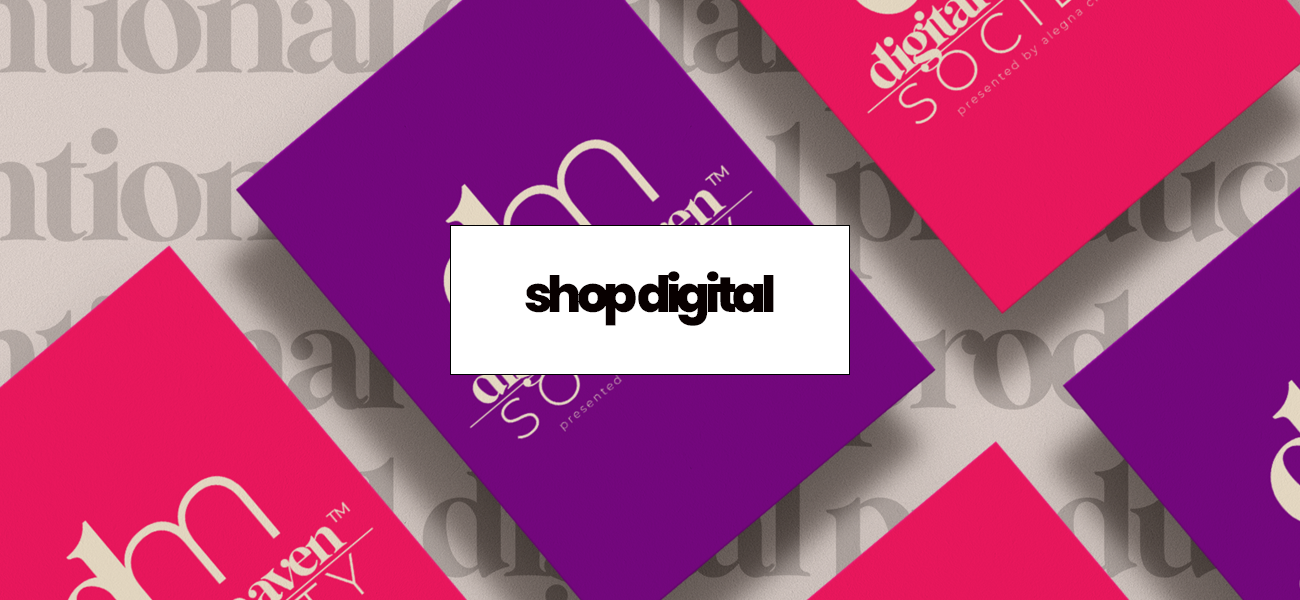 To Niche or Not to Niche: Deciding Your Digital Marketing Path
To Niche or Not to Niche: Deciding Your Digital Marketing Path
When you step into the digital marketing space, one of the first questions you’ll face is: Should I choose a niche or keep things broad? It’s a decision that sparks endless debate among entrepreneurs, influencers, and content creators alike. Some swear by niches as the golden ticket to authority and success, while others argue that not having a niche gives you freedom, flexibility, and wider reach.
The truth? Both approaches can work—but the right choice depends on your goals, personality, and business vision. Let’s break down the pros and cons of each path so you can decide which one makes sense for you.
What It Means to Have a Niche
A niche is a focused area of expertise, interest, or industry that defines your content and audience. Instead of marketing to “everyone,” you zero in on a specific group of people with a specific problem. For example:
- Fitness niche: Weight loss for busy moms
- Business niche: Personal branding for freelancers
- Lifestyle niche: Minimalist living for millennials
A niche creates clarity, both for you and your audience. People know what you stand for, what you provide, and why they should follow you.
The Advantages of Having a Niche
- Clarity and Authority
When you position yourself within a niche, you automatically stand out as an expert in that field. You’re not “just another marketer”—you’re the go-to resource for a particular type of content. This credibility often leads to faster trust-building with your audience.
- Stronger Connection with Your Audience
A niche allows you to speak directly to people’s needs. Instead of vague messaging, your content feels personal, intentional, and relatable. People love feeling understood—and niching down makes that easier.
- Easier Marketing Strategy
If you know your niche, you know where your audience hangs out, what language resonates with them, and what products they’re likely to buy. This means you can create more focused campaigns, which often leads to better ROI on ads, emails, and social content.
- Monetization Potential
Brands love working with influencers and entrepreneurs who have a targeted, engaged audience. A strong niche can attract partnerships, sponsorships, and loyal customers who are more likely to purchase your products or services.
The Challenges of Having a Niche
Of course, niching down isn’t perfect. Here are some of the drawbacks:
- Burnout or boredom: You may feel boxed in if your interests shift over time.
- Pressure to stay consistent: Audiences may expect the same type of content, making it harder to pivot.
- Smaller audience pool: While highly engaged, your reach might feel limited compared to broader creators.
If you’re someone who thrives on variety and reinvention, locking yourself into one niche might feel like a cage instead of a strategy.
What It Means to Be Niche-Free
On the other side of the debate are creators and entrepreneurs who choose not to niche down. These individuals build audiences around their personality, lifestyle, or general expertise rather than one hyper-focused topic.
Think of popular creators who talk about business and travel and fashion. Or influencers who share day-in-the-life content without sticking to one “bucket.” Their brand is built around them, not a single category.
The Advantages of Being Niche-Free
- Creative Freedom
When you’re not tied to one subject, you can create content on whatever inspires you. This keeps things fun and sustainable for the long haul.
- Broader Audience Appeal
Not having a niche allows you to attract followers from different backgrounds with different interests. Your content becomes relatable to a wider range of people.
- Personal Branding
Instead of being defined by your niche, you’re defined by yourself. This makes it easier to pivot into new industries or reinvent your brand when trends shift.
- Multiple Income Streams
If you’re not locked into one category, you may have the freedom to monetize in different ways—from lifestyle brand deals to diverse digital products.
The Challenges of Being Niche-Free
But going broad comes with its own set of challenges:
- Harder to grow at first: Without a clear focus, it may take longer to build traction or be discovered.
- Confusing for your audience: If your message feels scattered, people may struggle to understand what you actually offer.
- Trickier to monetize: Brands may hesitate to work with you if your audience isn’t clearly defined.
This approach requires a strong personal brand and consistent storytelling to tie everything together.
So, Which Is Right for You?
Here’s a simple way to decide:
- Choose a niche if: You want faster growth, clear authority, and focused monetization opportunities. You thrive on structure and know what audience you want to serve.
- Go niche-free if: You value freedom, variety, and personal branding over fast growth. You enjoy experimenting, connecting with diverse people, and keeping your content flexible.
There’s no one-size-fits-all answer. In fact, some creators start broad and later niche down once they see what resonates most with their audience. Others niche down first, then slowly expand their brand into other areas.
At the end of the day, digital marketing isn’t about fitting yourself into a box—it’s about finding the balance between what feels authentic to you and what connects with your audience. Whether you decide to niche down or stay niche-free, remember this: your consistency, your value, and your voice matter more than any label.
Success in digital marketing doesn’t come from following rigid rules—it comes from showing up, sharing your knowledge, and building real relationships with the people who need what you have to offer.
So ask yourself: Do I want to be the specialist who dominates one field—or the creative who thrives across many? Either way, the empire you build will be uniquely yours.


